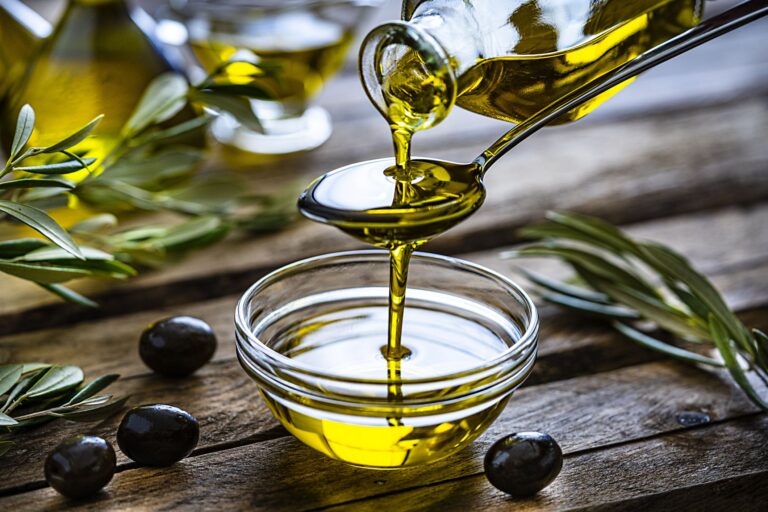
I roughly remember my grandmother carrying this bottle of mustard oil throughout the house and putting it in the kitchen. She used it all the time, not just for cooking, but also to treat dry skin, massage sore muscles. I never knew the kind of oil you use could influence more than your skin and your taste buds; sometimes, it even affects something as complex as gut health, especially in how edible oils influence your gut health.
Science has recently unraveled the very important role that the gut plays in overall health and how edible oils influence your gut health. These oils we cook with every day can either support or disrupt this delicate balance. Whether you are drizzling olive oil on your salad or cooking with coconut oil, these oils have a profound effect on your digestive system. But how exactly do edible oils influence your gut health?
Understanding the Gut and Its Role in Health
The Significance of the Gut Microbiome
Trillions of microorganisms reside in the human gut, forming the gut microbiome. The gut microbiome plays a critical role in digestion, nutrient absorption, and even immune function. When the gut microbiome remains balanced, these microorganisms help maintain your health. However, a poor diet, antibiotics, or certain oils can upset this delicate balance, leading to gut inflammation and triggering a wide range of health problems, from gastrointestinal disorders to chronic diseases like obesity or heart disease.
Scientists have discovered that a healthy gut reduces inflammation in other parts of the body, thereby supporting a strong immune system. It can also impact mental health. But what role do edible oils play in preserving or disturbing this equilibrium? Let’s take a brief historical journey through edible oils and their influence on gut health, as well as the evolution of edible oils in diets.
Edible oils have undergone a tremendous transformation over the years. Ancient civilizations favored oils like olive oil and sesame oil, while modern diets increasingly feature refined and processed oils such as soybean and corn oils. Historical accounts show that people valued edible oils not only for their flavor but also for their medicinal properties. Today, we are rediscovering how these oils can influence our health, particularly in terms of gut health.
What is edible oil? Edible oil can simply be defined as any oil fit for human consumption. These oils are usually plant-based and extracted in either a refined or an unrefined state. The process of refining edible oil removes impurities but removes beneficial compounds, such as antioxidants and essential fatty acids. First, to know how these oils affect the gut, it would be important to understand the types of edible oils.
How Various Types of Edible Oils Impact Gut Health
Health Benefits of Vegetable Oil: The Good and the Bad
Vegetable oils, which include sunflower oil and soybean oil, are perhaps the most consumed edible oils in the world. These are rich in polyunsaturated fats, specifically omega-6 fatty acids. Though this type of fats is essential for health, an imbalance in the level of omega-6 to omega-3 fatty acids leads to inflammation in the gut. According to the American Journal of Clinical Nutrition, a diet rich in vegetable oils but poor in omega-3-rich oils such as flaxseed or fish oil disturbs the gut microbiome.
In contrast, healthier vegetable oils that contain a high level of monounsaturated fats are avocado oil and olive oil. The rationale behind this conclusion is because the Journal of Nutritional Biochemistry just recently released an article detailing how the consumption of olive oil aids in the promotion of beneficial gut bacteria diversity. Therefore, it improves gut health.
Coconut Oil vs Olive Oil: Which is Better for Gut Health?
Among the most hotly debated are coconut oil versus olive oil. Coconut oil is full of medium-chain triglycerides, or MCTs, which are easily digestible and also have antimicrobial properties to promote gut health. However, excess consumption of coconut oil can disturb the balance of gut bacteria since it is saturated with saturated fats.
Olive oil, on the other hand, is rich in polyphenols and antioxidants that reduce inflammation in the gut and supports the growth of beneficial bacteria. The Mediterranean diet where olive oil is used has been associated with a healthy intestinal flora and prevention of IBD.
Sustainability of Palm Oil and Effects on Gut Health
Another oil widely consumed is palm oil, but it has attracted much attention because of environmental issues. At present, the talk on the sustainability of palm oil is hot, as biodiversity loss through land clearing for palm oil plantations occurs at a high rate. Besides the environmental factor, palm oil is rich in saturated fats. Taking them in large amounts leads to poor gut health.
A diet rich in saturated fats, such as palm oil, decreases the diversity of gut bacteria, increasing the risk of obesity and other chronic diseases, according to a study published in the British Journal of Nutrition.
Cold-pressed oils are healthier for your gut.
Generally, cold-pressed oils are healthier than refined oils when it comes to gut health. This is because they retain a greater percentage of the natural nutrients and, among other things, more antioxidants and fatty acids for healthy gut microbiomes. Cold-pressed extra virgin olive oil is packed with polyphenols that inhibit inflammation in the gut and foster good bacteria.
On the other hand, highly refined oils may lose many of these beneficial compounds. How to store edible oils to preserve freshness is another important consideration. Exposure to heat, light, and oxygen can cause oils to oxidize, leading to the formation of harmful compounds that can negatively affect gut health.
Edible Oils and Gut Inflammation
Benefits of Using Mustard Oil for Gut Health
Allyl isothiocyanate is an active compound in the traditional mustard oil of India. This research has shown its anti-inflammatory properties. Some of the studies indicate that gut inflammation could be decreased with mustard oil, making it safe for the ones who have IBS.
Difference Between Essential Oils and Extract Oils When It Comes to Your Gut
While essential oils have been widely used for aromatherapy purposes, there are several studies that have shown their therapeutic effects on gut health when applied mildly. For example, peppermint oil is used to relax muscles in the digestive tract and thus improve the symptoms of IBS. However, there is a difference between essential oils and extract oils. Essential oils are very concentrated and should be used with extreme care, whereas extract oils, such as therapeutic extract oils, are relatively safer for consumption.
Environmental Impact of Edible Oil on Gut Health
It is important to note the impact of edible oil production on overall health, including gut health. Sustainable production oils are less contaminated and have lower pesticide residues, which negatively affect the gut microbiome. With the future of petrochemical oils in question, more people are looking towards plant-based oils for health and environmental reasons.
Conclusion: A healthy gut is initiated by the right oils.
Oils you cook with are involved in the health of your gut microbiome. From the diverse beneficial health benefits of different edible oils to how they are processed and consumed, every element of oil production and use bears a relationship to gut health. Whether you like the nutty flavor of avocado oil or the robustness of mustard oil, it’s pretty clear that choosing the right things can really have a great impact on your digestive health.
So the next time you reach into your kitchen for that bottle of oil, remember not only how it enhances the flavor of what you are preparing but also what it is doing to your gut. And if the gut is indeed the gateway to good health, then what oils do you use to keep it in balance and healthy?




